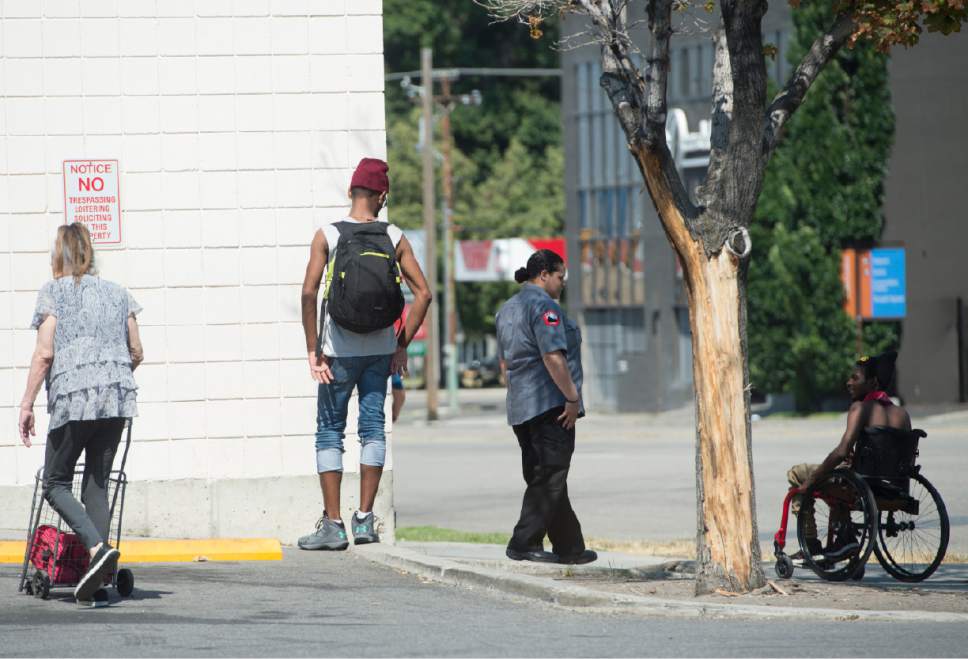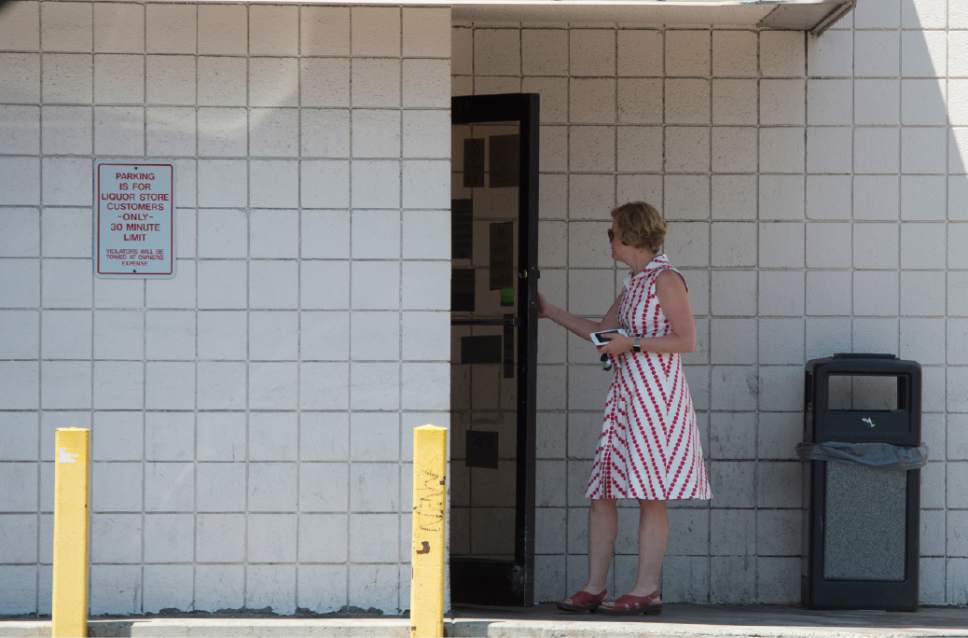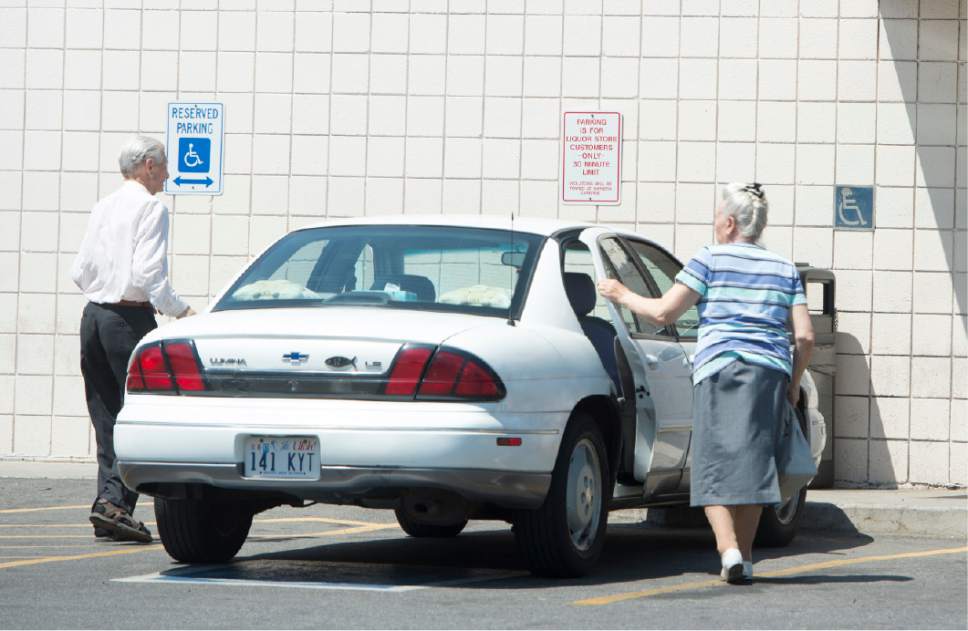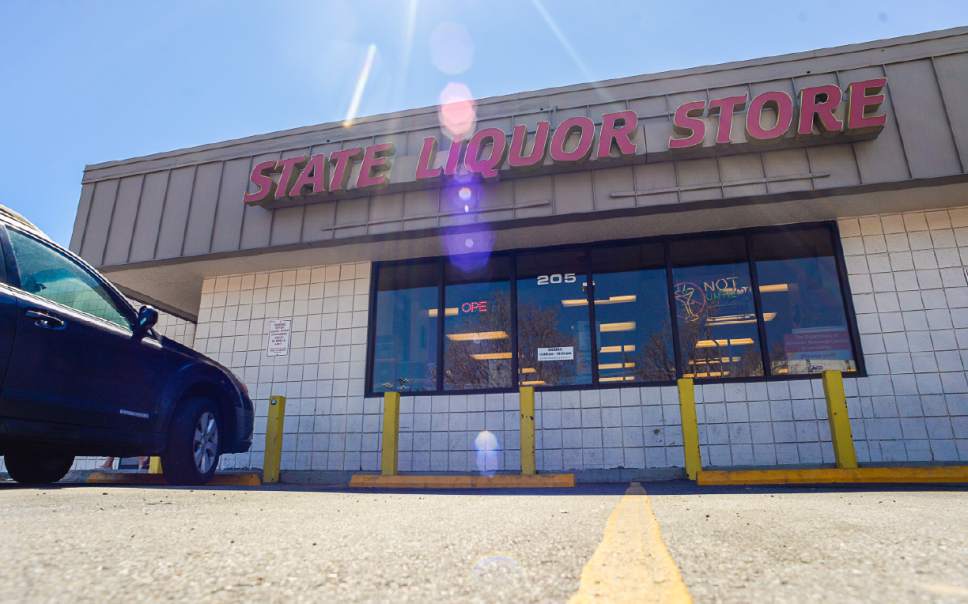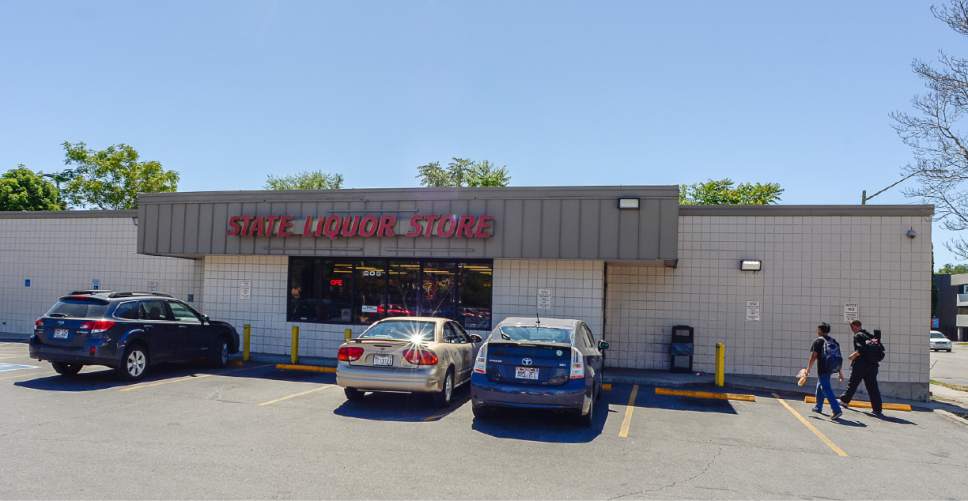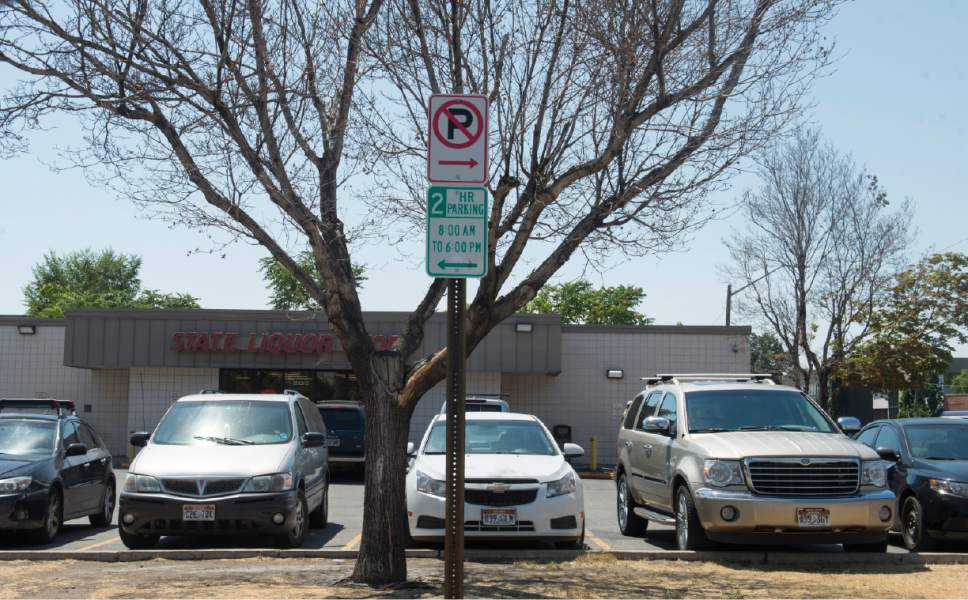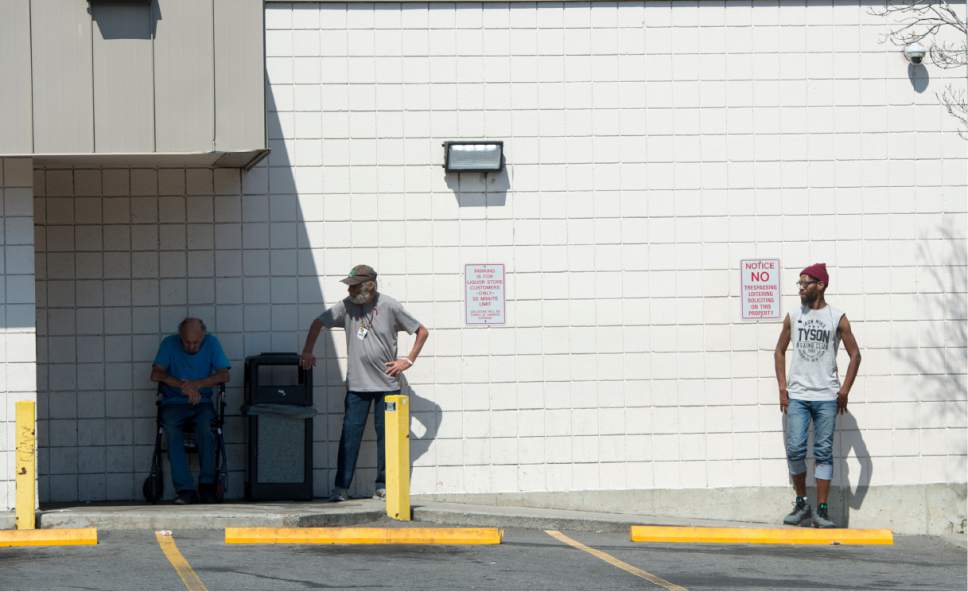This is an archived article that was published on sltrib.com in 2017, and information in the article may be outdated. It is provided only for personal research purposes and may not be reprinted.
The state liquor store downtown on 200 West and 400 South opens at 11 a.m., but a loose line starts forming outside 15 minutes before the doors are unlocked.
The early shoppers on a recent weekday morning are made up of two groups of people — a haggard-looking crew with the cardboard signs they'll use later to panhandle hanging limply by their waists and a small crowd of tourists in town for a work conference.
As the groups stream inside, security guard Melonie Thompson greets the regulars by name and with a smile. They already know what they're looking for, and some walk out with purchases of vodka (the store's top seller, according to the assistant manager) in their pockets and backpacks by 11:01 a.m.
During a given weekday, the clientele makes a noticeable shift. Around 5 p.m., people in casual and business-casual dress stop in on their way home from work. Business is brisk, and the small parking lot is crammed.
Salt Lake Tribune food writer Kathy Stephenson says this is her favorite state liquor store because of the eclectic and lively mix of shoppers.
Despite its relatively small size (the new West Valley City liquor store is more than half again as large), it packs a big punch. Sales of nearly $13.5 million last year made it Utah's eighth-busiest liquor outlet.
But the continued operation of the 37-year-old store has been challenged by elected leaders.
Salt Lake County Mayor Ben McAdams recently offered support for a proposal to close and move the store. He was following the call of Salt Lake County Sheriff Jim Winder, who originally floated the idea in his 21-point plan to address homelessness.
In a letter to state liquor officials, McAdams said relocating the store would "help reduce the flow of alcoholic beverages into the neighborhood surrounding the Rio Grande shelter" and "significantly improve public safety."
A spokeswoman for McAdams declined The Tribune's requests for an interview with the mayor, saying the letter reflected all his thoughts on the matter.
More recently, the Downtown Alliance, a nonprofit representing about 2,500 businesses in Salt Lake City, issued a call for either relocation or "operational changes" to the liquor store in its 10-point list of steps to "address a neighborhood in crisis."
Terry Wood, director of communications for the Department of Alcoholic Beverage Control, says there are compelling reasons to move the liquor store. But he says those reasons — such as finding a place with more space and better parking — are often overshadowed by talk of resolving the "homelessness problem."
"The image of [this location] as being the 'homeless store' is not true," Wood says. "Perhaps homeless people shop there, but there's also a lot of people from the downtown business area — professionals, office workers — that stop there on their way home. There's [also] a big tourist industry. There's a big hotel right across the street, and tourists go there when they're staying downtown."
Steve Anderson, assistant manager of the 400 South store, says people often forget about the other clientele his store serves, adding the homeless population may not represent as big a share of the store's customers as people think. He estimates 15 percent.
Though the store's employees do see problems with people experiencing homelessness wandering into traffic intoxicated and panhandling aggressively, Anderson says these represent the actions of only a few.
"Most of them come in here and are happy," he says. "You get to know them by their names. They're kind of like … I don't want to say a friend, but an acquaintance. A good customer. And, you know, most of the homeless don't cause any problems here. It's just there's a few."
Jessica Cole, who has worked at the liquor store for three months, has a different view of the homeless clientele.
"It's dangerous," she says. "We have people that come in here that threaten people constantly. They come from the homeless shelter down the street and they're intoxicated already."
Thompson, the security guard, has worked in the location for the past nine months and knows the homeless customers well. In the early afternoon, she walks outside to speak to one of the store's regulars, who has a bottle of vodka sticking out of his oversized jeans. The two chat about a relative of his.
"Stay out of trouble!" she calls after him when he leaves.
Thompson's estimate of the percentage of homeless clientele at the store is much higher than Anderson's — she guesses 75 percent — but she agrees not all are out to cause trouble.
"There are a lot of homeless that do like to cause problems, but there's a lot who are just living their lives and doing their own thing," she says. Thompson cuts the interview short to escort a scraggly looking customer to the back of the store for undisclosed wrongdoing.
Anderson and Thompson speculate that moving the store wouldn't eliminate the demand for liquor within the population and would only transfer the problem, but Winder says the move would diffuse crime in the Rio Grande area.
"I would rather have 10 alcoholics going to five different locations than 10 alcoholics at one location," he says. "I'm not proposing a cure for alcoholism. I am proposing a temporary solution to a concentration of crime and problem that I think everybody asserts is real."
Moving the liquor store wouldn't be easy and would likely take time.
Wood says the agency has a lease on the parking lot at 400 West until 2018 and on the building until 2020, and there are also proximity issues to consider — state law prohibits liquor stores within 600 feet of a church, school, park or library.
He anticipates that renegotiating leases would take at least a year or two, at which point the 1,100-bed homeless shelter on Rio Grande Street, which is expected to close in July 2019, would already be on its way out.
Anderson, the store's assistant manager, says he's not opposed to moving locations but reiterated the need to focus on problems that he sees as bigger than the store's clientele.
"The parking lot here on the weekends is more dangerous than the homeless [are]," he says.


